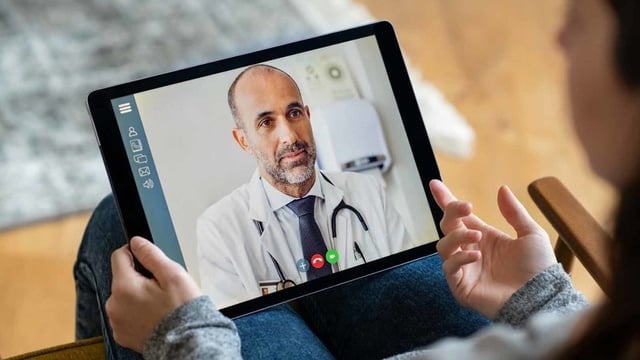
JAKARTA, inca.ac.id – Health research plays a critical role in advancing medical science and improving patient care. By transforming scientific knowledge into practical applications, hospitals can enhance treatment protocols, improve patient outcomes, and ensure that healthcare practices are based on the latest evidence. This article explores the importance of health research in bridging the gap between scientific discovery and hospital practice, highlighting key strategies for effective implementation.
The Importance of Health Research

Health research encompasses a wide range of studies, including clinical trials, epidemiological research, and health services research. The primary goal is to generate knowledge that can inform healthcare practices and policies. Here are some key reasons why health research is essential:
- Evidence-Based Medicine: Health research provides the evidence needed to support clinical decision-making. By integrating research findings into practice, healthcare providers can ensure that their treatment approaches are effective and based on the latest scientific knowledge.
- Improved Patient Outcomes: Research-driven practices lead to better patient outcomes. When hospitals adopt evidence-based interventions, they can reduce complications, improve recovery times, and enhance overall patient satisfaction.
- Cost-Effectiveness: Implementing research findings can lead to more efficient use of resources. By identifying the most effective treatments and interventions, hospitals can reduce unnecessary procedures and associated costs.
- Innovation in Healthcare: Health research fosters innovation by exploring new treatments, technologies, and practices. This continuous cycle of inquiry and application drives advancements in patient care and healthcare delivery.
Strategies for Translating Research into Practice
To effectively translate scientific knowledge into inca hospital practice, several strategies can be employed:
1. Collaboration Between Researchers and Clinicians
Building strong partnerships between researchers and clinicians is crucial for successful translation of research findings. Collaborative efforts can ensure that research is relevant to clinical needs and that clinicians are involved in the research process. Regular communication and joint initiatives can facilitate this collaboration.
2. Education and Training
Healthcare professionals must be educated about the importance of health research and how to incorporate evidence-based practices into their work. Training programs, workshops, and continuing education opportunities can help clinicians develop the skills necessary to critically evaluate research and apply findings to their practice.
3. Establishing Evidence-Based Protocols
Hospitals should develop and implement evidence-based clinical guidelines and protocols. These guidelines should be regularly updated based on the latest research findings, ensuring that patient care reflects current best practices. Involving interdisciplinary teams in the development of these protocols can enhance their relevance and acceptance.
4. Utilizing Technology and Data Analytics
Advancements in technology and data analytics can facilitate the integration of research into practice. Electronic health records (EHRs) can be used to track patient outcomes and adherence to evidence-based guidelines, while data analytics can identify areas for improvement and inform decision-making.
5. Encouraging a Culture of Research
Fostering a culture that values research within the hospital setting can enhance the translation of scientific knowledge into practice. Encouraging staff to engage in research activities, participate in clinical trials, and contribute to quality improvement initiatives can create an environment where evidence-based practices thrive.
6. Patient Involvement
Involving patients in the research process can help ensure that the findings are relevant and applicable to their care. Patient feedback can provide valuable insights into treatment preferences and outcomes, ultimately leading to more patient-centered care.
Challenges in Translation
While the translation of research into practice is essential, several challenges can hinder this process:
- Resistance to Change: Healthcare professionals may be hesitant to adopt new practices, especially if they are accustomed to traditional methods. Overcoming this resistance requires effective communication and demonstrating the benefits of evidence-based practices.
- Limited Resources: Hospitals may face constraints in terms of funding, staffing, and time, making it difficult to implement research findings. Prioritizing research initiatives and allocating resources effectively can help address these limitations.
- Variability in Research Quality: Not all research is of equal quality. Clinicians must be equipped to critically assess the validity and applicability of research findings to ensure that they are using the best available evidence.
Conclusion
Health research is vital for advancing medical practice and improving patient care. By turning scientific knowledge into hospital practice, healthcare providers can ensure that their interventions are effective, efficient, and aligned with the latest evidence. Implementing strategies such as collaboration, education, and the establishment of evidence-based protocols can facilitate this translation process.
As the healthcare landscape continues to evolve, the integration of health research into practice will remain essential. By fostering a culture that values research and prioritizes evidence-based care, hospitals can enhance patient outcomes, reduce costs, and drive innovation in healthcare delivery. Ultimately, the successful translation of research into practice will lead to a healthier population and a more effective healthcare system.
Read also about Blueberry to discover its antioxidant-rich profile, brain-boosting benefits, and delicious versatility in both sweet treats and healthy meals.






